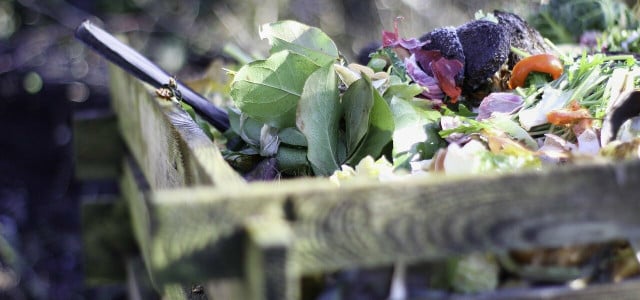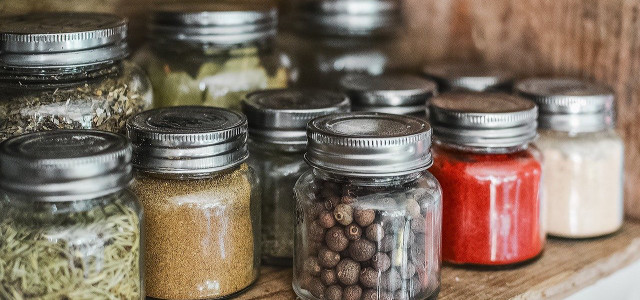Thought composting was only for people with a backyard? Think again. You too can compost from your apartment and take one step closer to a zero-waste lifestyle.
Unnecessary amounts of food waste are heading off to landfills every day in the US. This is of massive concern, as organic waste produces methane if left to decompose on its own. Methane in the atmosphere contributes hugely to global climate change, so to help protect the environment, we should take every step needed to reduce the further emission of this greenhouse gas.
To ease the strain on landfills across the country and lighten the load in your trash can, you can start your very own compost pile in your apartment. Composting is a simple way of decomposing your food naturally, eventually producing nutrient-rich fertilizer for you to use on your plants all year round.
With the right composting bin that fits your space and lifestyle, learning how to compost in an apartment is a breeze. And don’t worry, it isn’t smelly at all! This guide offers 4 different tips and options so you can choose what is best for you.
Read on: Food Waste: 10 Pro Tips for Reducing Food Waste
1. How to Compost in an Apartment: Worm Bins
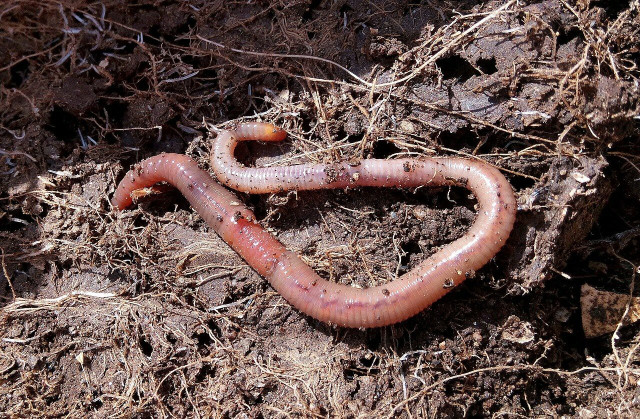
(Foto: CC0 / Pixabay / PortalJardin)
Worm bins are your safest bet for a quick and easy way to compost in your apartment. With the help of some worms, you can break down your household waste quickly and easily.
How to Make Your Own Worm Bin:
All you’ll need to make a worm bin are
- two square plastic bins about 15 inches deep and 25 inches wide,
- some shredded newspaper,
- a little dirt and
- your little squirming workers; the worms.
Here’s what to do:
- Make holes using a drill near the bottom and a few inches from the top of one plastic bin. This allows for drainage and ventilation. Place the bin with the holes inside the bin without holes.
- Moisten your shredded newspaper and place it in the upper bin, until it is about one-third full. Avoid shiny and colored paper.
- Add the dirt: Make sure the dirt is chemical-free. Eventually, the worms will be making their own dirt, so this is a one-time step.
- Add your worms: You will need to add about one pound of worms. Red wigglers are best and can be found in most good pet stores or online. Websites like Uncle Jim’s Worm Farm offer loads of useful tips for composting beginners.
- You will need to have a continuous supply of shredded newspaper to top up the bins every now and again. The newspaper is a source of carbon and acts as a buffer to the nitrogen being produced by the food waste, so ensuring a steady flow of shredded newspaper is really important.
Ready-Made Worm Bins:
If crafty composting isn’t your thing, then you’re in luck. Nowadays, there are several good worm composters available on the market. We recommend the Worm Factory 360 Composter, available in online shops or on Amazon**. This four-tiered worm bin is made from recycled material, is odorless, and has plenty of room for all your kitchen scraps. You can also try checking your local nursery or garden shop to see if they have worm bins on offer.
Pros:
- Worm bins are easy to make yourself or purchase online and are an odorless and discrete way of composting your food waste.
- Worm bins are small enough to fit neatly on your balcony, underneath a kitchen sink, next to the garbage bins, or in a storage cupboard.
Cons:
- You will need to keep an eye on the carbon-nitrogen balance in your worm bin. Too much carbon (from the newspaper) and decomposition will slow down; too much nitrogen (from the food waste) and the bin will start to smell. The balance is not hard to find, but it might take a bit of trial and error.
2. Compost Tumblers
If you are lucky enough to have a large balcony, access to a garden, or permission to use your rooftop, then a compost tumbler could be the option for you.
These compost bins are airtight, which is great for keeping pests out, like mice, rats, and raccoons. They also trap all heat, which increases the speed of decomposition, and come with a hand crank so you can easily turn your compost without any hassle or getting dirty. With a compost tumbler, you can have natural fertilizer in as little as 13 weeks!
Compost tumblers can be purchased in most home and garden stores, or online (e.g. on Amazon**).
Pros:
- Most compost tumblers are designed to blend nicely into an outdoor area like a patio or garden.
- This composting method requires very little maintenance.
Cons:
- Compost tumblers are too big to fit inside, so if you do not have the access to outdoor space in your apartment, then a compost tumbler is probably not for you.
- When the bin is full, you will need to leave the food waste for at least two weeks to decompose. This means you will need to go some weeks with food waste piling up in your apartment. Some tumblers have two compartments; one for decomposing food waste and one for storing it. If your tumbler does not have two compartments, you may need to store your food waste in a ceramic or stainless steel pail with a tight lid in the meantime.
3. Composting in an Apartment: Electric Composters
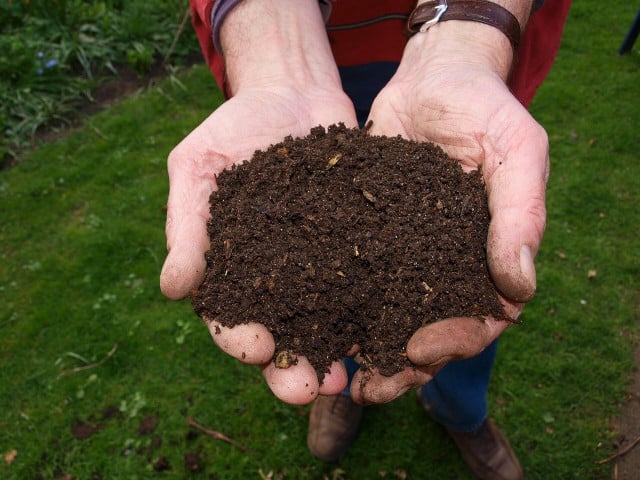


(Foto: CC0 / Pixabay / jokevanderleij8)
These small countertop alternatives to composters are new to the scene. Technically, these appliances do not compost your food waste, but instead grind it down to a pulp, which you can use as fertilizer just like compost.
Pros:
- Electric composters are small, odorless, and can get rid of your food waste within hours.
- They can process meat products and large food waste items, like avocado stones, overnight.
Cons:
- These are not cheap. You will be paying more than $300 for one. The FoodCycler (available on Amazon**) comes highly recommended.
- Electrical devices need electricity to function. Other ways of composting in and around your apartment will work without any electricity at all.
4. Community Composting or Compost Collection
It could be that none of the above apartment-composting options work for you. However, you can still do your part in reducing the strain on landfills and limiting the amount of methane gas produced by rotting food.
Many communities across the country are now taking on the responsibility of composting and offer curbside pick up. Check online to see what your municipality is organizing.
If there are no such options near where you live, there is surely someone in the community who will gladly take your scraps. Why not head down to your local farmers’ market and offer your food scraps to the farmers? Many of them may be able to use your waste on their own farms to help grow their crops.
What To Do With Your Compost
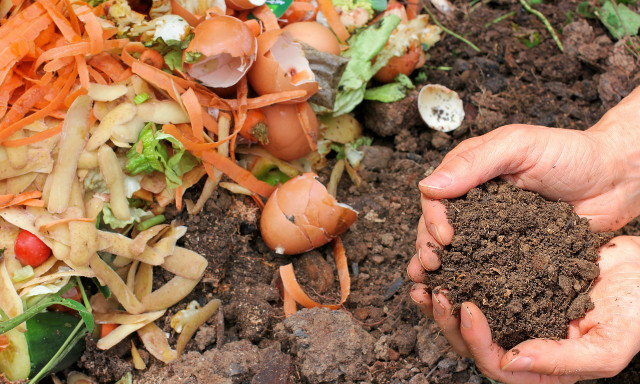


(Foto: CC0 / Pixabay / melGreenFR)
If you are a gardener or an avid houseplant-lover, then you will know that good soil and fertilizer is a must. But buying these products in the shops can be expensive, and many of them contain suspicious chemicals. Thankfully, the fertilizer that comes out of your composting bin is all-natural and nutrient-rich, and all plants around your apartment are going to love it.
What Can You Compost?
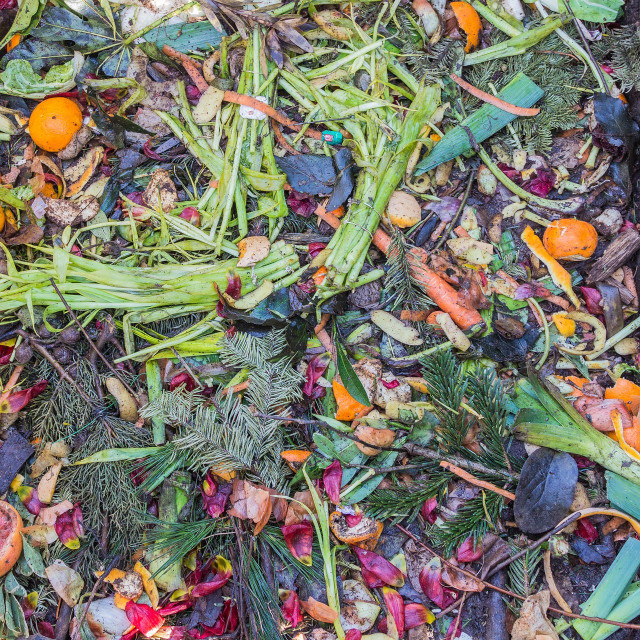


(Foto: CC0 / Pixabay / meineresterampe)
In order to get the best fertilizer from your compost, you will need to know what exactly you can compost, and what you can’t.
You can compost: fruit and vegetable scraps and peels, eggshells, paper products, coffee grounds, and tea bags as well as green waste from your garden.
You cannot compost: meat and dairy products, grain products, and cooking oils.
The list of food waste items is a bit more complex, and there are other items, like pet waste and diseased plants that should also not go into your compost bin. To familiarize yourself with exactly what can and cannot go into your compost bin, read our article on what you can compost, what you can’t, and why.
Read on: Can You Compost Tea Bags? Some May Even Benefit Your Compost
Read more:
- Reuse Vegetable Scraps: Skip the Trash and Put Food Back on Your Plate
- 7 Sustainable Home and Garden Uses for Coffee Grounds
- Rhubarb Leaves: Don’t Let Them Go to Waste
Do you like this post?






